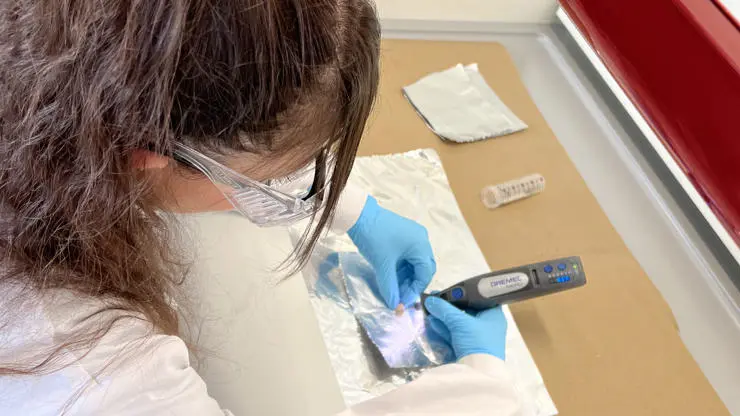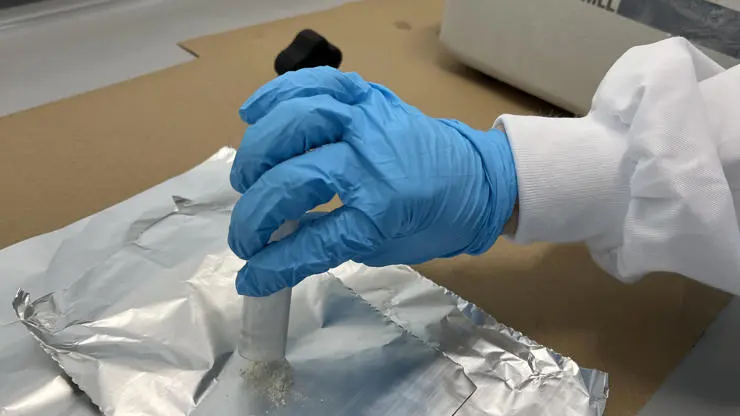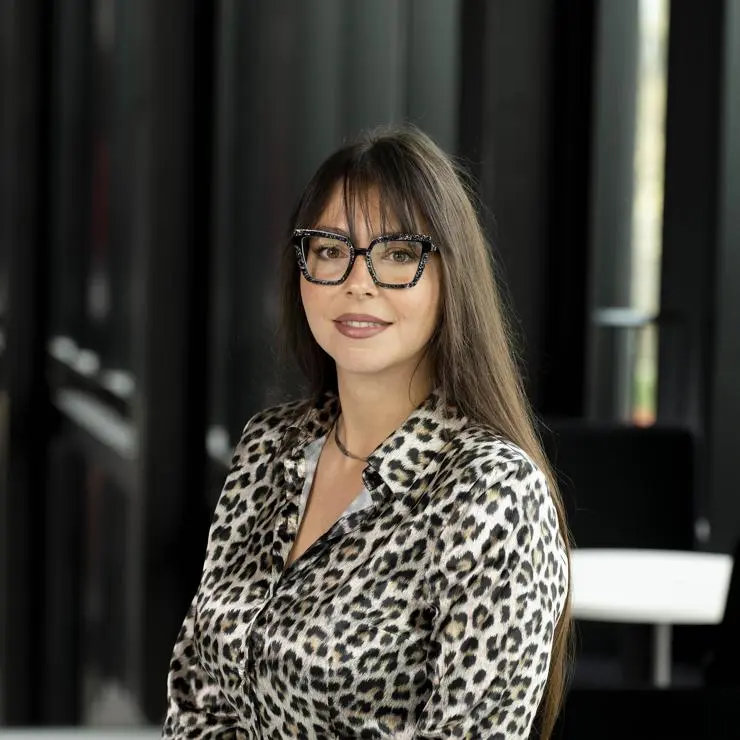A University of Central Lancashire (UCLan) scientist has been granted further funding to continue her research into ground-breaking human bone identification techniques.
Senior Research Fellow Dr Noemi Procopio has received £700,000 on top of her original £1.2 million grant from the UK Research and Innovation (UKRI) Future Leaders Fellowship project to continue her research into developing new bone analysis techniques that will more accurately define when a person died and their age at the time of death.
Existing methods often rely on estimations from scientific experts, resulting in inconsistent results and subjectivity. Since 2019 Noemi and her team have developed their ‘ForensOMICS’ research to obtain far more accurate results.
Omics technology allows for biological information, such as DNA, to be extracted from very small fragments of materials that can then by analysed to identify measurable features, known as biomarkers, to accurately define age and time of death.
"Despite the growing interest in omics across fields like environmental science, palaeontology, and food science, the field of forensic science had not fully exploited the potential of these methodologies."
— Senior Research Fellow Dr Noemi Procopio
“Despite the growing interest in omics across fields like environmental science, palaeontology, and food science, the field of forensic science had not fully exploited the potential of these methodologies,” said Noemi.
“With the previous ‘Forens-OMICS’ project, we mapped the epigenomic, proteomic, metabolomic and lipidomic profile of skeletal specimens from individuals who died at different ages and for different periods of time, and discovered biomarkers associated with age-at-death and post-mortem interval.
“Through this additional funding, we can work towards the vital next step of validating these markers with the eventual aim of creating user-friendly tests for unbiased, reliable and quick estimations using the instrumentation widely available in forensic laboratories.”
"Through this additional funding, we can work towards the vital next step of validating these markers with the eventual aim of creating user-friendly tests for unbiased, reliable and quick estimations ..."
— Senior Research Fellow Dr Noemi Procopio
The project team is also expanding the study to apply the omics technology to bodily fluids commonly found on crime scenes to accurately determine how long they have been there.
Noemi added: “The benefit of this research will expand beyond academia; in fact, forensic scientists, police forces and forensic practitioners will be provided with novel tools to address time-related queries that could be easily implemented in their work environment, to improve the outcome of forensic investigations enhancing the identification of unknown remains and increasing the faith in the justice system.
“Anthropologists, archaeologists and palaeontologists will also benefit, as the results will also contribute to the archaeological community's knowledge about our ancestors by overcoming the limitations in chronological age estimation that exists in current approaches.”
"The benefit of this research will expand beyond academia; in fact, forensic scientists, police forces and forensic practitioners will be provided with novel tools to address time-related queries that could be easily implemented in their work environment ..."
— Senior Research Fellow Dr Noemi Procopio
The flagship UKRI Future Leaders Fellowships scheme supports talented people in universities, businesses, and other research and innovation environments to develop world-class research to tackle ambitious and challenging research and innovation.
Noemi is also working with Human Taphonomy Facilities around the world, where scientists study decomposition on donated human cadavers, to develop new techniques for bone sample preservation after discovering through her research that the current method of maceration to clean bones is detrimental to molecular research.





